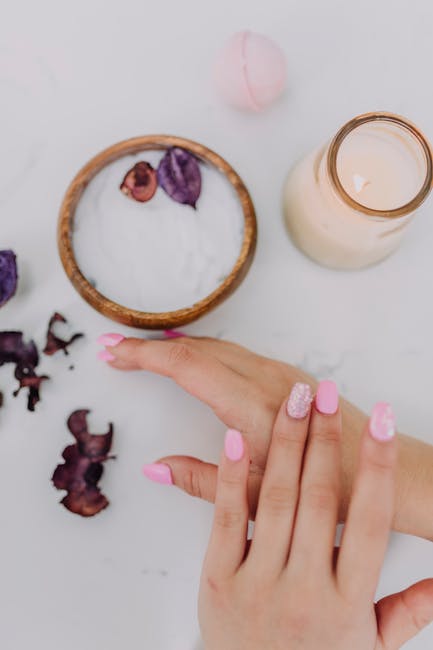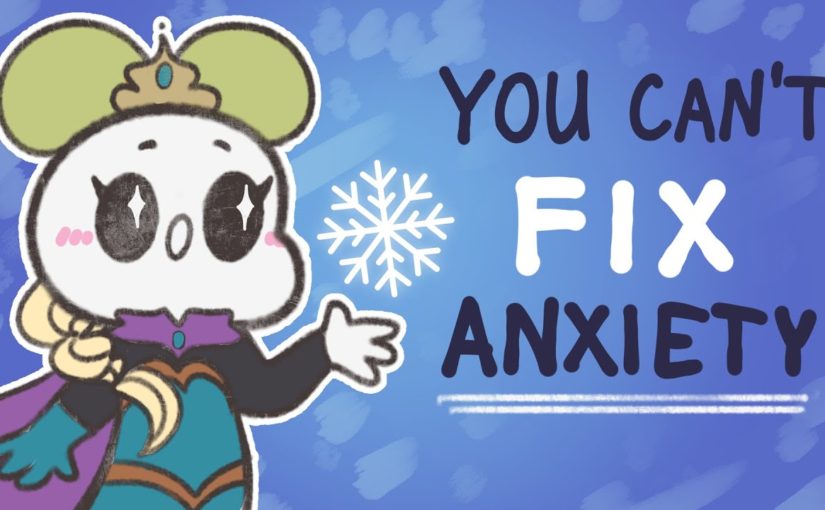– [Narrator] Hey,
Psych2Goers welcome back. Do you have anxiety or do you know what it
might feel like to have it? If you answered no, then it’s still important
for us to educate ourselves and raise awareness about anxiety and other mental illnesses, so it’s a good thing you’re here. And if you have someone in your life who you think might be struggling
with feelings of anxiety, then it would do you a lot of good to learn more about what it’s
like to live with anxiety so you can help eliminate
the stigma against it and be there for them
in a way that they need. So with that said, here are eight things People with anxiety want you to know. Number one, anxiety is real,
even if you can’t see it. One of the worst things you
can do to someone with anxiety or any kind of mental
health concern is to invalidate their feelings by saying their anxiety is a choice or that it’s all in their head. Just because you can’t see it doesn’t make their struggle
with mental illness any less real. Number two, anxiety
affects a lot of people all over the world. According to the Anxiety and Depression
Association of America, roughly 31% of those aged
18 years old and above have or will experience
an anxiety disorder at some point in their lives. That means over 40 million
adults in the United States alone suffer from anxiety every year. That makes anxiety one of
the most commonly diagnosed mental illnesses in the world, affecting people of all ages, races, genders, and backgrounds. Number three, people with
anxiety wish they could stop, but it’s complicated. Next time you ask your friend
to just snap out of it, relax, or get a grip on their anxiety, think back to a time when you
got sick or seriously injured. Could you just tell your
body to get over the cold or stop being allergic to something? To heal your bones or cure your infection with the sheer power of will? No, right? If you could, then life
would be much easier for you. Well, mental illness
is the same way. Living with anxiety is far
from a walk in the park, and it’s not something that someone can just get over in a snap. Number four, anxiety
affects the mind and body. Sometimes our anxious thoughts lead to experiencing physical symptoms like sweaty palms,
trembling, muscle tension, shortness of breath, and a pounding heart. Anxiety is never just in your head. And trying to rationalize it, as kind as your intentions might be when you tell someone there’s
no need to be nervous, tends to make them feel worse, not better. Number five, anxiety has
nothing to do with you or the relationship. One of the reasons why it’s so difficult for people with mental illnesses to have healthy, thriving,
long-term relationships, be they platonic or romantic, is that most people tend to have this very problematic idea that
if you love someone enough, you can make their mental illness go away, that they can be well for
you or change for the better because of how much they love you and how much you love them. But it just doesn’t work that way because their anxiety has
nothing to do with you or their relationship with you. And just because they feel
anxious around you sometimes doesn’t mean they love you any less. Number six, seemingly random
things can be triggering. Anxiety can be scary, especially when we don’t
understand the exact nature of why and when it happens. A lot of people suffering from anxiety are often triggered by
many different things. Oftentimes, it can be uncomfortable or unfamiliar situations, such as public speaking or
having fights with friends, but it can also be brought out by seemingly random, unrelated things.

Number seven, it’s not your
job to fix those with anxiety. When a friend or family member confides in you about their
struggles with anxiety, they’re doing it because they trust you and feel safe being vulnerable around you. They’re not asking you to fix them or make their problems go away. So just be there for them
like a good friend would, and any support or
understanding you can show will surely go a long way in helping them manage their anxieties. And finally, number eight,
we are more than our anxiety. Finally, but maybe most importantly, people with anxiety want you to know that they are more than their
struggles with mental illness. They don’t let their anxiety
define them or their life, so you shouldn’t either. And just because someone
struggles with anxiety doesn’t mean they can’t
enjoy themselves anymore, reach their full potential, or have meaningful
relationships with others. Anxiety disorders are also one of the most highly treatable mental
illnesses in the world, so there’s always hope that
things will get better. So if you have anxiety, do
you agree with these points? Did you learn something new? Remember, if you or anyone you know is struggling with anxiety or any other serious
mental health concern, please do not hesitate to reach out to a mental healthcare
professional today and seek help. Did you find this video insightful? Tell us in the comments below. Please like and share it with friends who might find value in this video, too. Make sure to subscribe to Psych2Go and hit the notification
bell for more content. All the references used are added in the description box below. And thanks so much for watching.
I’ll see you next time.
As found on YouTubeAnxiety disorders, phobias, and chronic panic attacks affect millions of people all over the world. Often, treatment consists of medications used to reduce anxiety, but these medications don’t work for everyone. Many people are too afraid to explore the real reason why they have anxiety or they’re too embarrassed to seek medical attention. Instead, they suffer for years struggling to learn how to cope with this condition, alone. More often than not this results in the person avoiding many of the places and activities they once loved because they’re so afraid they’ll have a panic attack in public.
If you’re tired of trying new medications that don’t work or you’re looking for an all-natural approach to anxiety treatment, the 60 Second Panic Solution program can help.
 Number seven, it’s not your
job to fix those with anxiety. When a friend or family member confides in you about their
struggles with anxiety, they’re doing it because they trust you and feel safe being vulnerable around you. They’re not asking you to fix them or make their problems go away. So just be there for them
like a good friend would, and any support or
understanding you can show will surely go a long way in helping them manage their anxieties. And finally, number eight,
we are more than our anxiety. Finally, but maybe most importantly, people with anxiety want you to know that they are more than their
struggles with mental illness. They don’t let their anxiety
define them or their life, so you shouldn’t either. And just because someone
struggles with anxiety doesn’t mean they can’t
enjoy themselves anymore, reach their full potential, or have meaningful
relationships with others. Anxiety disorders are also one of the most highly treatable mental
illnesses in the world, so there’s always hope that
things will get better. So if you have anxiety, do
you agree with these points? Did you learn something new? Remember, if you or anyone you know is struggling with anxiety or any other serious
mental health concern, please do not hesitate to reach out to a mental healthcare
professional today and seek help. Did you find this video insightful? Tell us in the comments below. Please like and share it with friends who might find value in this video, too. Make sure to subscribe to Psych2Go and hit the notification
bell for more content. All the references used are added in the description box below. And thanks so much for watching.
I’ll see you next time.As found on YouTubeAnxiety disorders, phobias, and chronic panic attacks affect millions of people all over the world. Often, treatment consists of medications used to reduce anxiety, but these medications don’t work for everyone. Many people are too afraid to explore the real reason why they have anxiety or they’re too embarrassed to seek medical attention. Instead, they suffer for years struggling to learn how to cope with this condition, alone. More often than not this results in the person avoiding many of the places and activities they once loved because they’re so afraid they’ll have a panic attack in public. If you’re tired of trying new medications that don’t work or you’re looking for an all-natural approach to anxiety treatment, the 60 Second Panic Solution program can help.
Number seven, it’s not your
job to fix those with anxiety. When a friend or family member confides in you about their
struggles with anxiety, they’re doing it because they trust you and feel safe being vulnerable around you. They’re not asking you to fix them or make their problems go away. So just be there for them
like a good friend would, and any support or
understanding you can show will surely go a long way in helping them manage their anxieties. And finally, number eight,
we are more than our anxiety. Finally, but maybe most importantly, people with anxiety want you to know that they are more than their
struggles with mental illness. They don’t let their anxiety
define them or their life, so you shouldn’t either. And just because someone
struggles with anxiety doesn’t mean they can’t
enjoy themselves anymore, reach their full potential, or have meaningful
relationships with others. Anxiety disorders are also one of the most highly treatable mental
illnesses in the world, so there’s always hope that
things will get better. So if you have anxiety, do
you agree with these points? Did you learn something new? Remember, if you or anyone you know is struggling with anxiety or any other serious
mental health concern, please do not hesitate to reach out to a mental healthcare
professional today and seek help. Did you find this video insightful? Tell us in the comments below. Please like and share it with friends who might find value in this video, too. Make sure to subscribe to Psych2Go and hit the notification
bell for more content. All the references used are added in the description box below. And thanks so much for watching.
I’ll see you next time.As found on YouTubeAnxiety disorders, phobias, and chronic panic attacks affect millions of people all over the world. Often, treatment consists of medications used to reduce anxiety, but these medications don’t work for everyone. Many people are too afraid to explore the real reason why they have anxiety or they’re too embarrassed to seek medical attention. Instead, they suffer for years struggling to learn how to cope with this condition, alone. More often than not this results in the person avoiding many of the places and activities they once loved because they’re so afraid they’ll have a panic attack in public. If you’re tired of trying new medications that don’t work or you’re looking for an all-natural approach to anxiety treatment, the 60 Second Panic Solution program can help.



